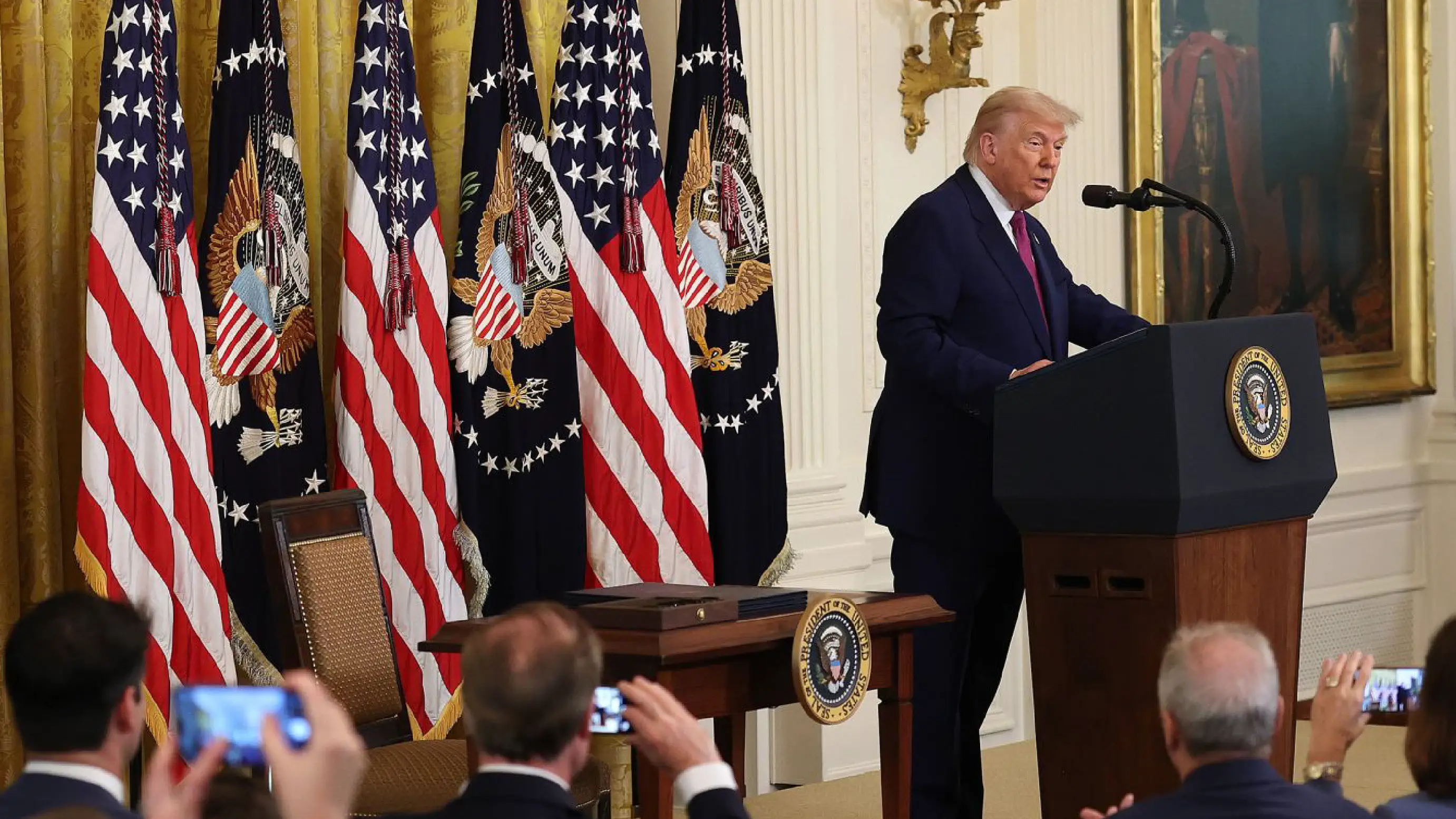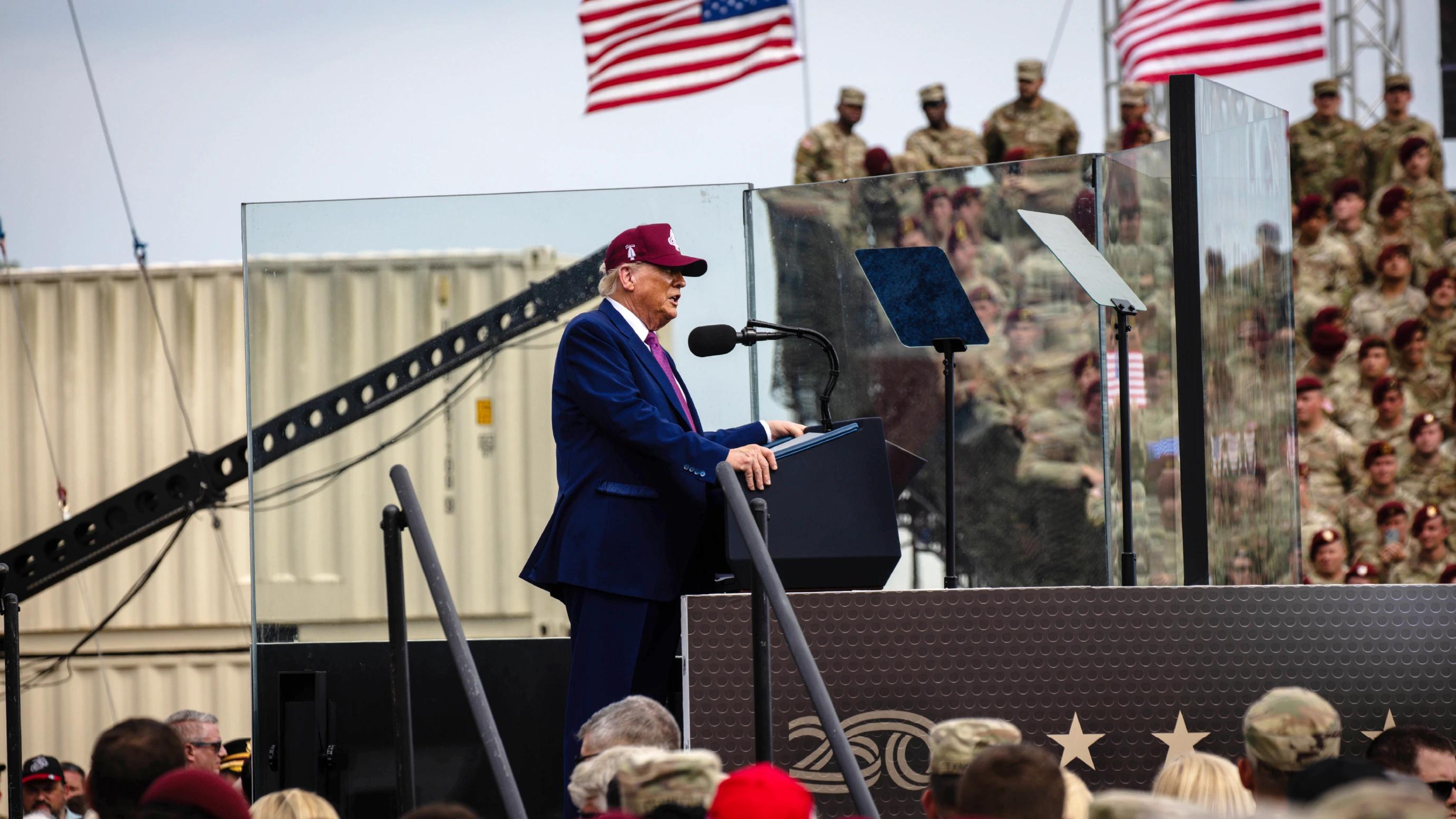WILL THE US JOIN ISRAEL’S ATTACK ON IRAN?

Since Israel first struck Iran on June 12, 2025, the two nations have exchanged several deadly blows with the current death toll sitting at 24 in Israel and, according to a US human rights organization, more than 400 in Iran. Representatives from the Trump administration initially sent mixed signals about the support the US has given to the Israeli attacks.
Some said there has been no direct US support, while the President himself stated that Israeli Prime Minister Benjamin Netanyahu informed him before the attacks began. Since then, Trump has been particularly coy about whether the US will join the Israeli attacks.
One thing is for certain – the US military will be prepared for any contingency as additional Naval warships and military aircraft continue to move into theater.
The US Is Positioning Itself to Potentially Join Israel’s Assault on Iran
The Israeli strikes occurred as US negotiators were engaged in discussions with their Iranian counterparts on a new nuclear agreement. After the initial Israeli strike, Iranian negotiators called off a planned meeting in Oman that was due to take place on June 15.
Trump has repeatedly said that the US position on the new agreement is very firm. “Iran cannot have a nuclear weapon. It’s very simple — you don’t have to go too deep into it. They just can’t have a nuclear weapon,” he said.
Even as Israel and Iran continue exchanging blows, Trump is pressing for further talks between the US and Iran on both a nuclear deal and an end to the war between Israel and Iran. Trump has proposed sending Vice President JD Vance and US envoy Steve Witkoff to meet with Iranian Foreign Minister Abbas Araghchi this week.
The President has made it clear, however, that time is running out. Trump has stated that he’s “not too much in the mood to negotiate” and that he’s looking for something much more than just a ceasefire.
“We’re looking at better than a ceasefire … an end, a real end, not a ceasefire, a real end,” Trump said. In addition, he added that he’s looking for a “complete give-up” by Iran.
Future Negotiations Between the US and Iran
As an experienced businessman, Trump views every negotiation as a balance between deals and leverage. Under the category of leverage, Trump views the military’s possession of so-called bunker-busting weapons – something Israel does not possess – as a deal changer if the US decided to attack.
Netanyahu has been pushing the US to bomb the Iranian nuclear facility at Fordow, located in a deep and robustly hardened bunker, as a way to break Iran’s will.
According to one US senior official, the Iranians want to continue talks. Before that can happen, however, the official said the US must be convinced that the Iranians have been, “brought to their knees fully so that they realize that in order to have a country, they have to talk.”
What Is a Bunker Buster?
Trump is facing a critical decision on whether to use America’s B-2 bombers to drop the GBU-57 bunker buster bombs on the Fordow nuclear facility or to use other assets with less devastating weapons. If the primary target is the Fordow, then the GBU-57 offers the best solution.
The development of air-dropped weapons that could penetrate hardened enemy targets – shipping, fortifications, underground enemy command centers and other challenging targets – began during WWII.
Both Germany and the United Kingdom fielded weapons. The UK even developed a weapon known as the “Grand Slam” that it used to attack a Nazi U-Boat pens. During that attack, two Grand Slams went through 15 feet of reinforced concrete hardening — an impressive result even by today’s standards.
The US employed its first bunker buster during the Korean War. The weapon – called the VB-13 Tarzon – was used against an underground North Korean command center.
During Operation Desert Storm in 1991, coalition forces needed a deep penetration bomb similar to the British weapons of World War II, but none of the NATO forces had such a weapon. The US and its partners rapidly developed bombs that weighed over two tons but carried only 647 pounds of high explosive. They were laser-guided and were designated the GBU-28. It was proven effective for the intended role.
In the modern era, the US has also developed a series of penetrating bomb bodies that could be attached to different guidance units and carried by a variety of air-to-ground fighter and bomber aircraft. This development started with the BLU-109 Penetrator, a weapon that Israel is suspected of dropping from one of its F-15Is to kill Hezbollah leader Hassan Nasrallah in Beirut on 27 September 2024.
In 2011, the USAF fielded the most powerful non-nuclear bomb in its inventory – the aforementioned GBU-57 Massive Ordnance Penetrator (MOP). The GBU-57 is a 30,000 pound weapon and can penetrate up to 60 meters beneath the surface to obliterate its target. It can only be carried by the B-2 Spirit due to its size.
What Will Happen if Negotiations Fail?
If negotiations fail, the US could be led to use military action to compel Iran to accept terms favorable to the US and Israel.
If this occurs, then it is more likely than not that these attacks will involve precision targeting of Iranian facilities, specifically the one at Fordow.
Precision Attacks
Thus far, the Israeli attacks have been largely specific. The IDF has targeted Iranian military leaders, nuclear sites, and elements of that nation’s Integrated Air Defense system enabling Israel to claim that it has achieved “air superiority” over Tehran.
If the US joined the air campaign, it would likely be carried out by USAF B-2 bombers that have been deployed to Diego Garcia in the Indian Ocean since May 2025.
Each B-2 can carry two of the GBU-57 MOP – the largest “bunker buster” in the USAF arsenal. The GBU-57 was designed and fielded for targets exactly like the one at Fordow.
Iran Warns of “All-Out War” If U.S. Joins Israeli Strikes
As Trump calls for Iran’s unconditional surrender, Iran has warned that any United States intervention in the conflict with Israel would risk an “all-out war.”
In an interview with Al Jazeera on Wednesday, Iran’s Ministry of Foreign Affairs spokesman Esmaeil Baghaei warned, “Any American intervention would be a recipe for an all-out war in the region.”
Baghaei added, “We have very good relations with Arab countries, and they are very cognizant of the fact that Israel has been trying to drag others into the war. … We are sure our Arab countries hosting US bases would not allow their territory to be used against their Muslim neighbors.”
Iran’s comments appear to be supported by the Gulf States who have condemned Israel’s attack. Saudi Crown Prince Mohammed bin Salman was even more forceful in his condemnation of Israel by offering his “condemnation and denunciation of these [Israeli] attacks, which undermine the sovereignty and security of the Islamic Republic of Iran and constitute a violation of international laws and norms.”
Americans Voice Concern Over a US Attack on Iran, and Trump Responds
Trump’s suggestion that he may authorize a US strike on Iran has elicited a largely negative response from typical Americans, and sharp criticism from both Democrats and Republicans in Congress.
According to an Economist/YouGov survey of 1,512 US adults, 60% of all respondents oppose US involvement in the war, while just 16% supported military action, and 24% were unsure.
Among those who voted for former Vice President Kamala Harris for president last year, 71% opposed war on Iran. So did 53% of Trump voters. In fact, a majority of respondents across all gender, race, age, and income categories opposed military action against Iran.
Lawmakers in the House and Senate are also divided on how and whether to strike Iran. Congress is the only branch of government that has the power to declare war, according to the U.S. Constitution, but presidents have stretched their own powers to engage in foreign conflicts in recent decades because the president can authorize strikes in defensive cases.
Some Representatives and Senators from both parties say they want a say in whether the US gets involved in the conflict between Iran and Israel. Reps. Thomas Massie, R-Kentucky, and Ro Khanna, D-California, introduced a resolution to block U.S. involvement in the conflict without Congressional approval. "This is not our war," Massie wrote on X. "Even if it were, Congress must decide such matters according to our Constitution."
Trump said on June 18 his decision is imminent and that he wasn't concerned about upsetting parts of his core MAGA political base that are publicly warning against the US being entangled in another foreign conflict.
Is the US Preparing for War?
As the USS Nimitz steams from the Indo-Pacific region to join the USS Carl Vinson in the Arabian Sea, combined with the deployment of additional fighter aircraft to the CENTCOM Area of Responsibility, it’s becoming very clear that US forces will soon be fully prepared for a major air and missile strike. Without a sizable ground element, however, a land invasion is impossible.
While most of the world implores Israel and Iran to end hostilities, and begs the US to stay out, successful negotiations between the US and Iran appear to be the only path toward avoiding US military involvement. Iran holds the cards in this scenario.
If they agree to negotiate on terms that appease the US and its Israeli partner, then a US strike might be averted. If not, then a US strike, accompanied by continued Israeli strikes, is almost a certainty.
How Iran will respond to even a relatively small precision strike is uncertain at this point. Iranian leaders have, in the past, threatened full-blown war only to settle for another volley of missiles and drones. Time will tell, as it always does, but it appears to be moving much faster during this current conflict.
Suggested reads:
SHARE:
TAGS:
JOIN OUR NEWSLETTER
Get the latest news and military discounts



